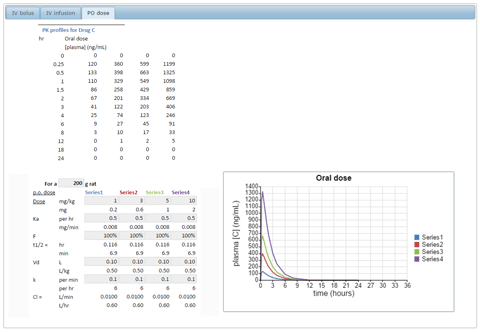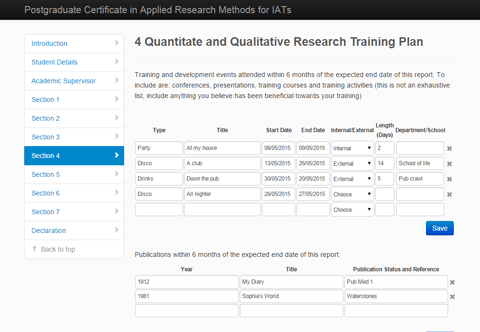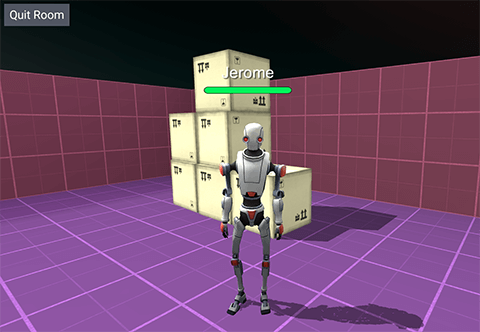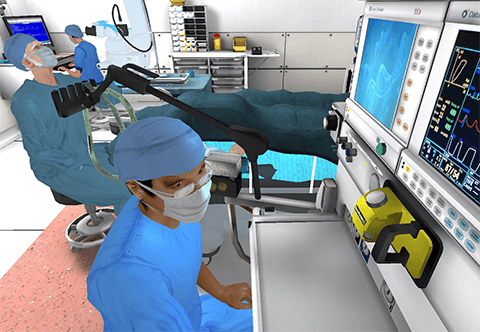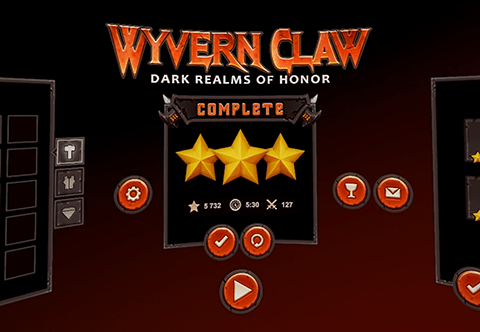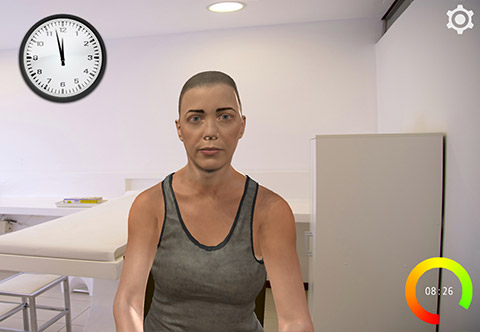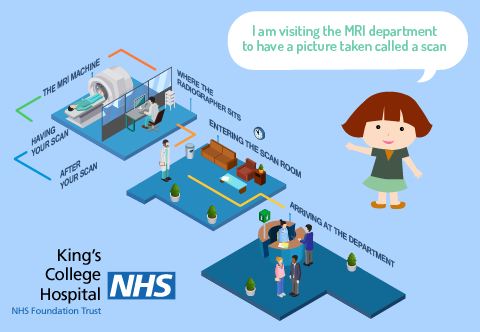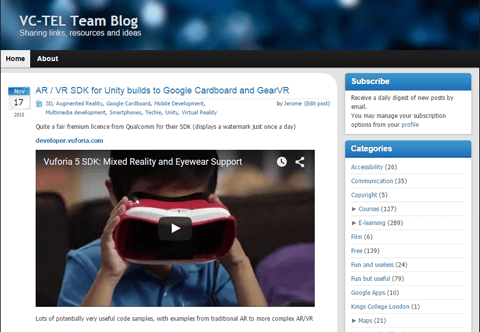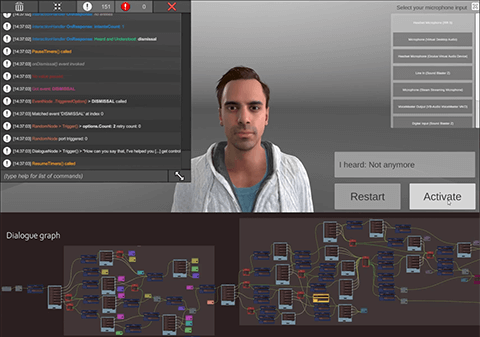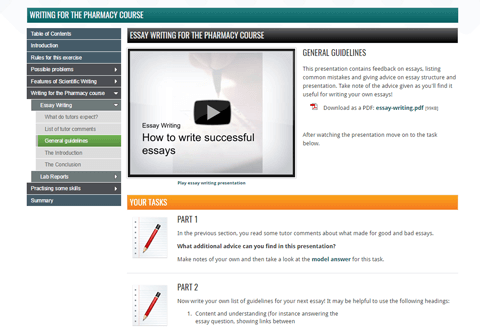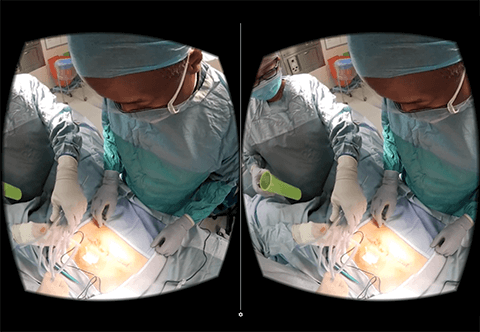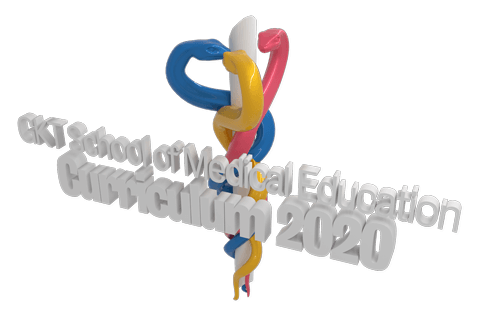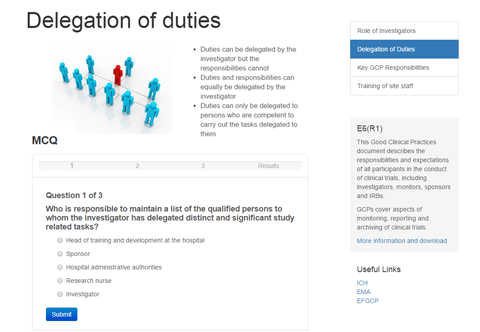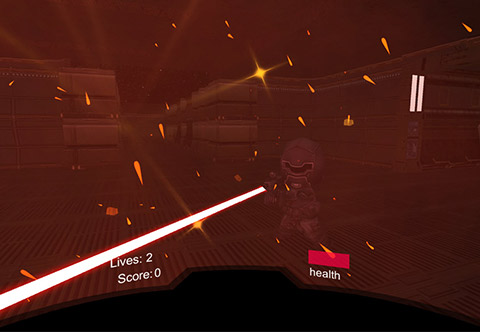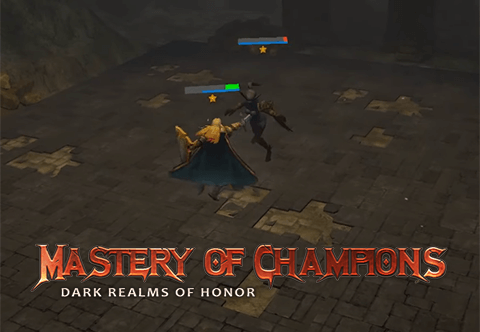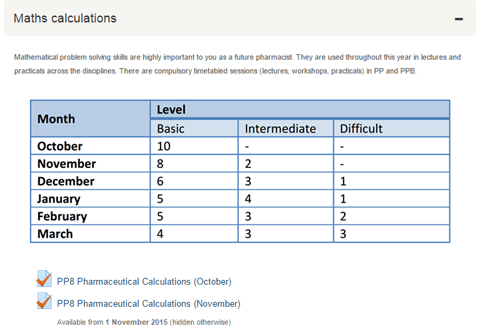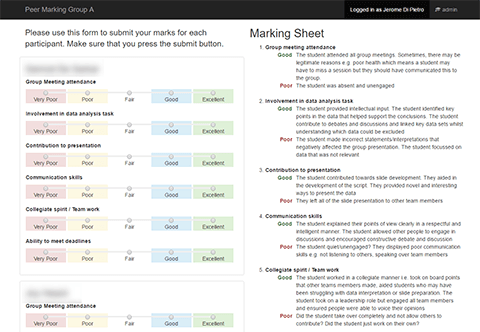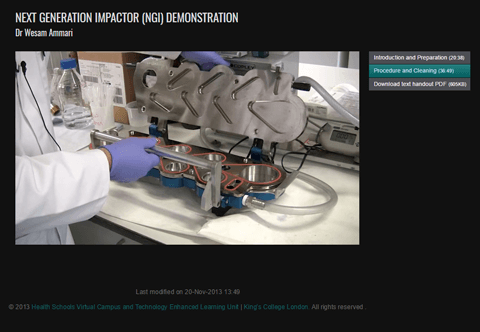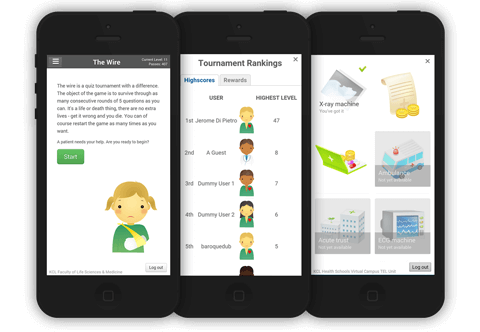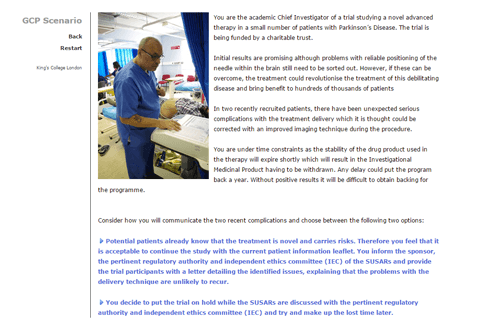The following presentation from a talk I gave to academic staff provides some insights into my instructional design strategies.
Designing for Distance LearningProject Description
Developed with the Department of Pharmacology for a global Pharma company, this distance learning programme is delivered to a global cohort of students living from as far as Asia to South America. The challenge of translating face-to-face teaching into an online course, for students across multiple time-zones, required a careful juggling of timetabled activities and self guided study. Drawing on my instructional design expertise I devised clear scaffolding to help support students during the four years of their course of study.
Created over a number of years the materials were re-purposed from sometimes quite dry PowerPoint presentations given me by academic staff and subject-matter experts. In their redesigned form, they range from video screencasts and digitised presentations to guided research activities, self-paced tutorials and more interactive activities such as branching scenarios and online virtual workshops. Notably, many of the materials developed for this programme have been reused across other courses and teaching areas in the Faculty.
Throughout, the peer-learning capabilities of Moodle have been used to the utmost. For example, using forum activities to foster debates between students, asking them to explore issues which may not have a clear-cut right or wrong answers and could not be easily assessed in the form of a simple MCQ. The timed and conditional release of materials is also employed to ensure that students have to demonstrate their understanding of a subject before progressing on to more difficult concepts.
Another key aspect of my approach to online teaching includes providing 'just in time information' instead of front-loaded content dumps. In other words, presenting students with a task to complete and giving them just enough guidance to allow them to complete this task for themselves. Most importantly, making learning relevant to work – based on real-world, work-centred scenarios and providing meaningful tasks that all build up to the module assessment submissions.
Software used: Adobe Dreamweaver / Premiere / Illustrator / Photoshop, Articulate Studio.
Project Details
- Client: Department of Pharmacology.
- Status: Completed Feb 2016
- Themes: instructional design, interactivity, web design
- Team: Jerome Di Pietro











